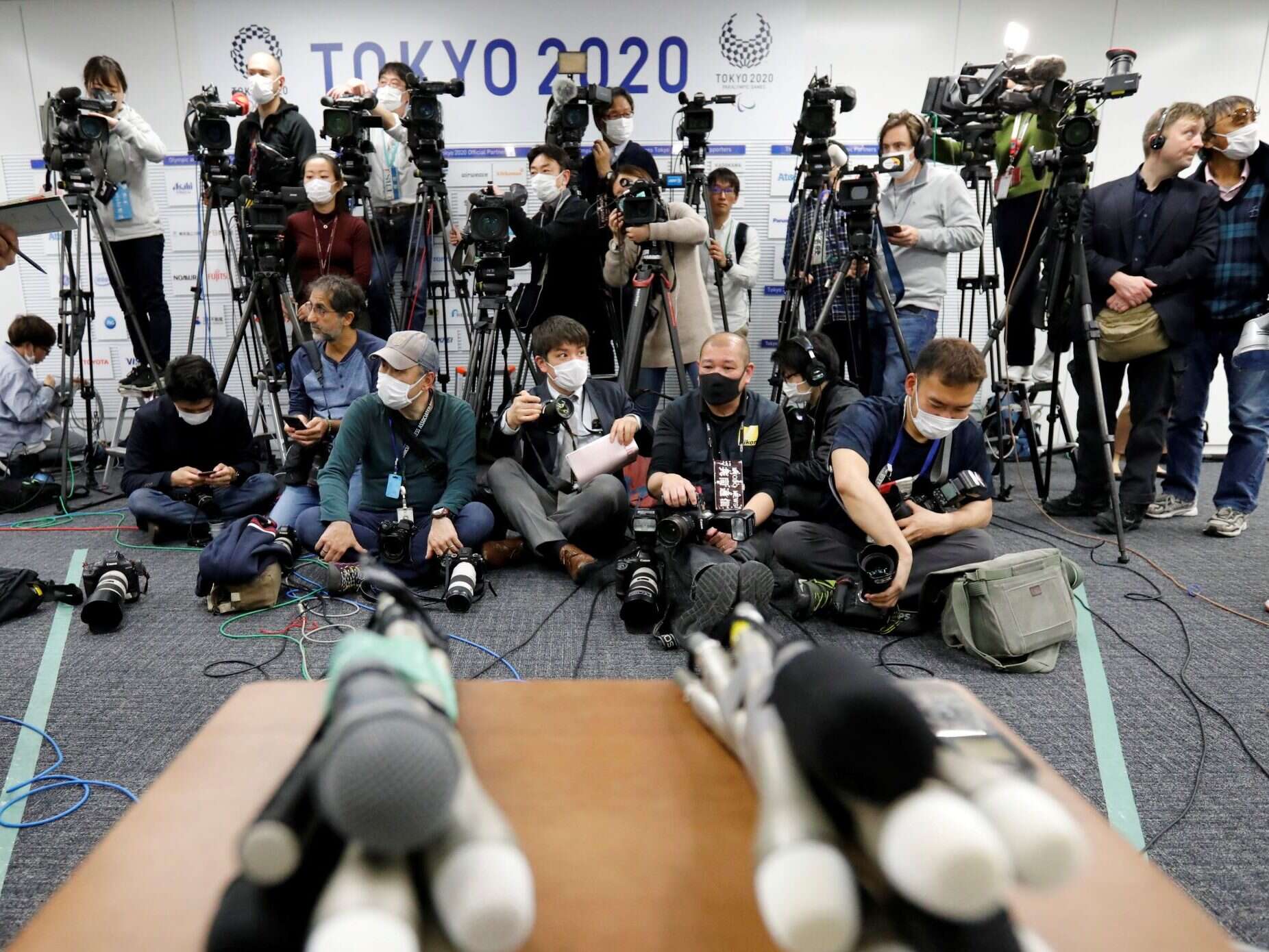
Never has the news business been more imperiled – or more vital – than during the coronavirus (Covid-19) pandemic.
Online audience figures are, in many cases, through the roof. But, for the time being at least, the commercial legs of our industry have been kicked out from beneath us.
Advertising is way down, with many advertisers (perversely) blocking the word coronavirus thereby disinsentivising news organisations from covering this vital subject.
All face-face-to-face events, essential for most B2B publishers, have been cancelled at cost of billions of pounds. And movement restrictions are placing great pressure on print distribution.
But news brands that react well to the current crisis will put in place the building blocks to emerge stronger once this crisis is over by providing an essential service for their readers at the time they need them most.
Read all Press Gazette’s coverage of Covid-19 and the news industry
Here are some of the insights and tips Press Gazette has gathered so far on how our industry can weather the current storm:
Invest now in long-term goodwill
Colin Morrison, former chief executive of Emap and editor of the Flashes and Flames website:
“Many publishers should consider developing specific community media (email newsletters and streaming etc.) for readers who have a greater than usual need for information, ideas, inspiration and motivation despite (because) of being stuck at home or with ordinary business paralysed.
“Publishers could use their resources (people) to do this job even though there may be no current revenue in it. It would be a service and an investment in long-term goodwill.
“The alternative is to close down services (because the virus is a challenge to business as usual) and re-start them when it becomes easier again. Judged either from a journalistic or business viewpoint, that might prove to be a disastrous strategy.
Radical consideration of every element of the business is needed

Douglas McCabe, chief executive of Enders Analysis:
“There are a number of things that make this crisis distinctive from previous downturns and recessions, but for the news industry there is one overwhelming one. It is this. In addition to there being an advertising collapse in print and online (this happened in 2008) there is an additional and unique physical distribution crisis.
“Core, older readers are unable to pick up print editions due to confinement in the home.
“Some publishers are creatively addressing this by providing home deliver services – at great expense – but Government should be in no doubt that a structurally-challenged industry has entered an existential phase for many publishers. It is to be applauded that journalists covering the crisis are recognised as ‘key workers’, but near-term interventions of a more direct and impactful nature need to be urgently called upon.
“To make a more general point, the crisis has, and will, rapidly accelerate four underlying structural changes that we have been researching for some time.
- “The first is the shift in consumer spend from retail to ecommerce
- “The second is the shift in advertising spend from offline to online
- “The third is the shift from print-based media consumption to mobile online consumption
- “And the fourth is the shift from mass reach/advertising media to user and reader supported media.
“All four of these long-term structural changes have already affected the strategies and operating models of all news and magazine media. But for all media the rapid acceleration of all of four of these structural trends at once will require a more radical consideration of every element of the business. It will also require a coherent and extensive Government response.”
Make sure communication with staff is frequent and clear
Laura Jenner, product director at Immediate Media:
“Remote working – especially for teams that aren’t used to it – can be a challenge for managers and team members alike.
“The feeling of isolation may be liberating at first, but can present mental and physical health challenges, which it’s important to supply information about to all staff.
“It’s essential to take advantage of all the electronic ways to communicate; from messaging services such as Slack to email, Whatsapp groups, conference and video calling, and good old-fashioned phone calls.
“Collaborative software packages such as Google Docs and MS Teams can make sure that there isn’t an endless stream of updated documents to deal with.
“Product development teams in many industries have been offshored or contained remote working members for a long time, but that doesn’t mean it’s all plain sailing. It’s really vital to make sure communication is frequent and clear, so that people are aware of the priorities and continue to work together in the way that they would do when co-located.
“Tricky problems are often best solved by huddling around one desk and talking it through; while sharing a screen and keeping a call open isn’t quite the same, it at least allows for ideas to be bounced around and tested.
“It’s important to keep all the regular meetings in the diary and not just cancel them ‘because we’re now at home’. A feeling of business as usual can be reassuring, and it keeps the channels of communication open so everyone is aware of the goals, progress, ongoing work and blockers.
“Additionally, teams might want to put some extra meetings in just to make sure morale is up and everyone is talking – a virtual tea break, if you like.
“What if you’re worried that a team member isn’t quite moving at the same pace as when you can see them in the office? It’s probably worth checking if they are ok, in the first instance.
“If they have a tendency to get distracted at home (and let’s face it, it’s understandable!) perhaps having a clear list of goals for the week and regular check-ins can help keep the focus in place.
“And as ridiculous as it sounds, managers might want to make sure people aren’t overdoing it. Just because you’re not commuting doesn’t mean you have to start work at 7am! Regular breaks, physical movement and fresh air are vital to health and productivity, and should be encouraged for everyone who is able to do so.”
This crisis could restore trust in journalism

Nic Newman, lead author of the Reuters Institute Digital News Report, speaking at Press Gazette’s Digital Journalism Summit 2018.
Nic Newman, co author of the Reuters Institute Digital News Report:
“Times of crisis tend to bring out the best in journalists. Though we will all have personal and family concerns, we are primed and used to reacting to unexpected events and we’ve already seen that.
“We’ve seen innovation in pop-up formats (like emails, podcasts), changes to broadcast schedules and a real focus on providing clear public information – including making sure there is access for all (removing paywalls to ensure proper access)
“It is possible – but not certain – that the crisis will go some way to restoring trust in journalism and the role it plays in informing and scrutinising. I would predict that the BBC and public service organisations in particular will come out of the crisis much enhanced with the debates over relevance and funding well and truly kicked into the long grass.
“The crisis is also a huge test of platforms and their ability to police misinformation and use the power of social networks and groups to bring people together. Once again I think we’ll see interventions here that would normally be countenanced, rapidly changing behaviour (more Whatsapp and Facebook groups) and much of this will last after the crisis.
“Interest in the news – and audiences for it – will be enormous but the economic shock will have a huge impact on the news we get. Many, many weaker publications will go to the wall as a result of the crisis and the collapse in advertising.
“Subscription and membership publications are in a better position but these will also be affected by economic downturn and recession. Many newspapers will cut print production during the crisis and this will never restart. In short this shock will accelerate changes to media that would have taken a decade into a much shorter period.”
Ramp up reporting and verification
Martin Moore, director of the Centre for the Study of Media, Communication and Power at King’s College London:
“Just like in wartime, people are now glued to TVs, radios and smartphones for news bulletins – waiting to hear how their lives might change.
“Back then we turned to big news outlets for these bulletins, and it looks like we’re doing that again (a new Edelman survey found 2/3 of people in Britain relied most on major news organisations – almost double the number that rely on national government sources).
- “What does this mean for news organisations?
- “It means recognising and reacting to the gravity of this moment – and many have.
- “It means reasserting and ramping up institutional roles in terms of reporting and verification.
- “It means finding and amplifying the voices of those that urgently need to be heard. And this will sometimes mean putting journalistic egos to one side (see the reaction, for example, to Robert Peston’s journalistic scoop about quarantining the over-70s).”
“It’s a worrying time for smaller news organisations who, like small businesses, will struggle to get through this period as advertising revenues dry up. If these don’t survive we’ll have even more news deserts than we already do.”
Email pged@pressgazette.co.uk to point out mistakes, provide story tips or send in a letter for publication on our "Letters Page" blog

